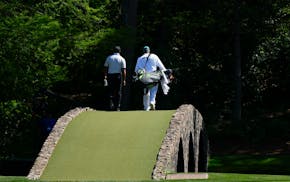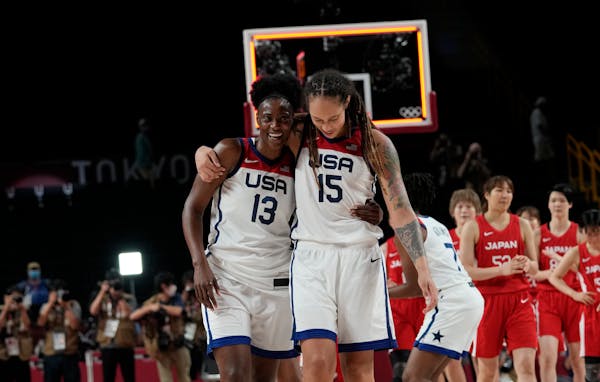At the beginning of the season, Lynx head coach and general manager Cheryl Reeve promised to limit Sylvia Fowles' minutes to preserve her health and energy.
That lasted a few games. Then Reeve asked, to anyone who would listen, "What was I thinking?''
Tuesday night, the Lynx produced one of their best games of the season, in defeating defending WNBA champion Seattle, while Fowles produced one of the best games of her career.
For the Lynx, a team that made it to the semifinals last year and ranks as the league's fourth-best team at the moment, the game established that they can contend with the best of the WNBA. With a relatively easy remaining schedule in their final eight games, they could even contend for one of the top two seeds, which received byes through the first two rounds of the playoffs.
"That is a huge advantage,'' Reeve said.
The Lynx have a certain hall of famer coaching them. They have a certain hall of famer at center. They have Kayla McBride playing well on both ends.
They have scoring, depth, a tough and savvy point guard, improved defensive cohesiveness and, now, with the return of Aerial Powers, near-optimal health.
But if you want to know what this team needs to win another title, you can assume the usual posture: facing East, toward UConn.
The modern mecca of women's college basketball produces an inordinate number of Olympians and WNBA stars, and the Lynx would not have won titles without UConn great Maya Moore.
Only Fowles, 35, remains from the last Lynx team that won a title. Reeve began her fast-forward rebuild by drafting UConn's Napheesa Collier with the sixth pick in the 2019 draft.
Collier projected to be a nice all-around player. She turned into the rookie of the year, an All-Star and an Olympian.
In the 2020 draft, Reeve selected UConn point guard Crystal Dangerfield with the 16th pick.
Few second-round picks make an impact in the WNBA because there are only 12 teams and effectively only around 120-130 roster spots. Dangerfield became rookie of the year.
Both are overachievers who played well enough, early enough in their careers to have prompted disappointment at times this season.
Collier is remarkably versatile, but she has not met Reeve's standards for rebounding this year, and sometimes she is too passive offensively.
Reeve said Collier hasn't been efficient offensively since returning from the Olympics and that she's "pressuring her, so to speak,'' to play like a star.
"No question, I've been on Phee,'' Reeve said. "Your best players have to play like stars. ... I want her to understand that that is necessary for our overall ability to reach the heights that we think this team can reach.''
Dangerfield's rapid development and fourth-quarter dominance helped a longshot Lynx team make it to the league semifinals last year. Her play in the first three games early this season prompted Reeve to sign Layshia Clarendon, who has become the floor leader this team needed.
Dangerfield played 13 minutes against Seattle, making two of three shots to produce four points, zero assists, two rebounds and a steal. She was a plus-5. She played like a useful backup.
In the Lynx's previous game, a victory at Chicago, Dangerfield reprised 2020. In 13:31, she made five of her eight shots, including two of three three-point attempts, plus all four of her free throws. She scored 16 points to go with three assists, a steal and zero turnovers.
Dangerfield as a fourth-quarter microwave is a fascinating weapon. Imagine spending three quarters bumping shoulders with Clarendon, and then having to try to keep the quick Dangerfield out of the paint in the fourth.
"Coming off the bench and scoring, that can be her role for us, and that is an important role,'' Reeve said, while adding Damiris Dantas to the list of pivotal players.
If Collier plays like a star and Dangerfield like Minnesota's best closer, the Lynx could win another title.

Souhan: Why Tiger Woods should keep swinging
Souhan: Scheffler wins Masters again, shows what makes him special
Morikawa falters in final round at Masters

Keeping up with the Joneses who helped design Augusta National's classic back nine


